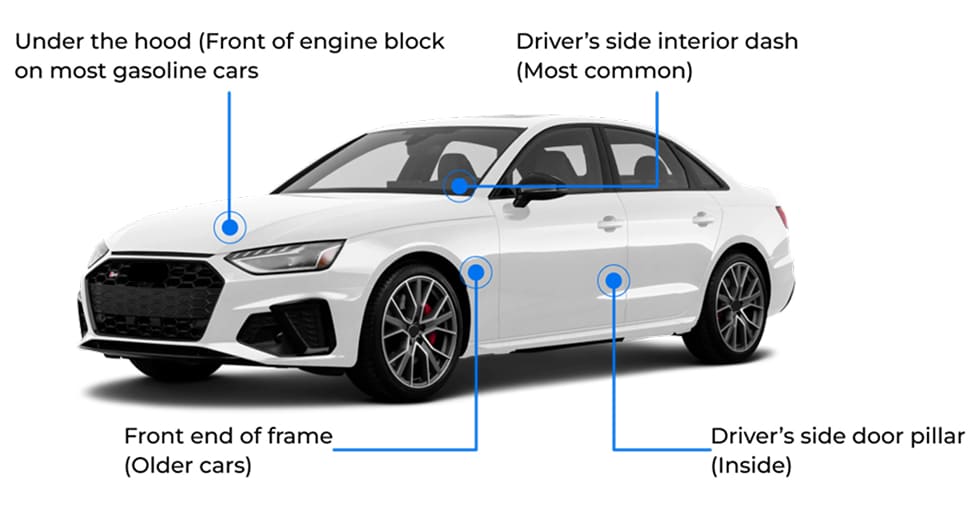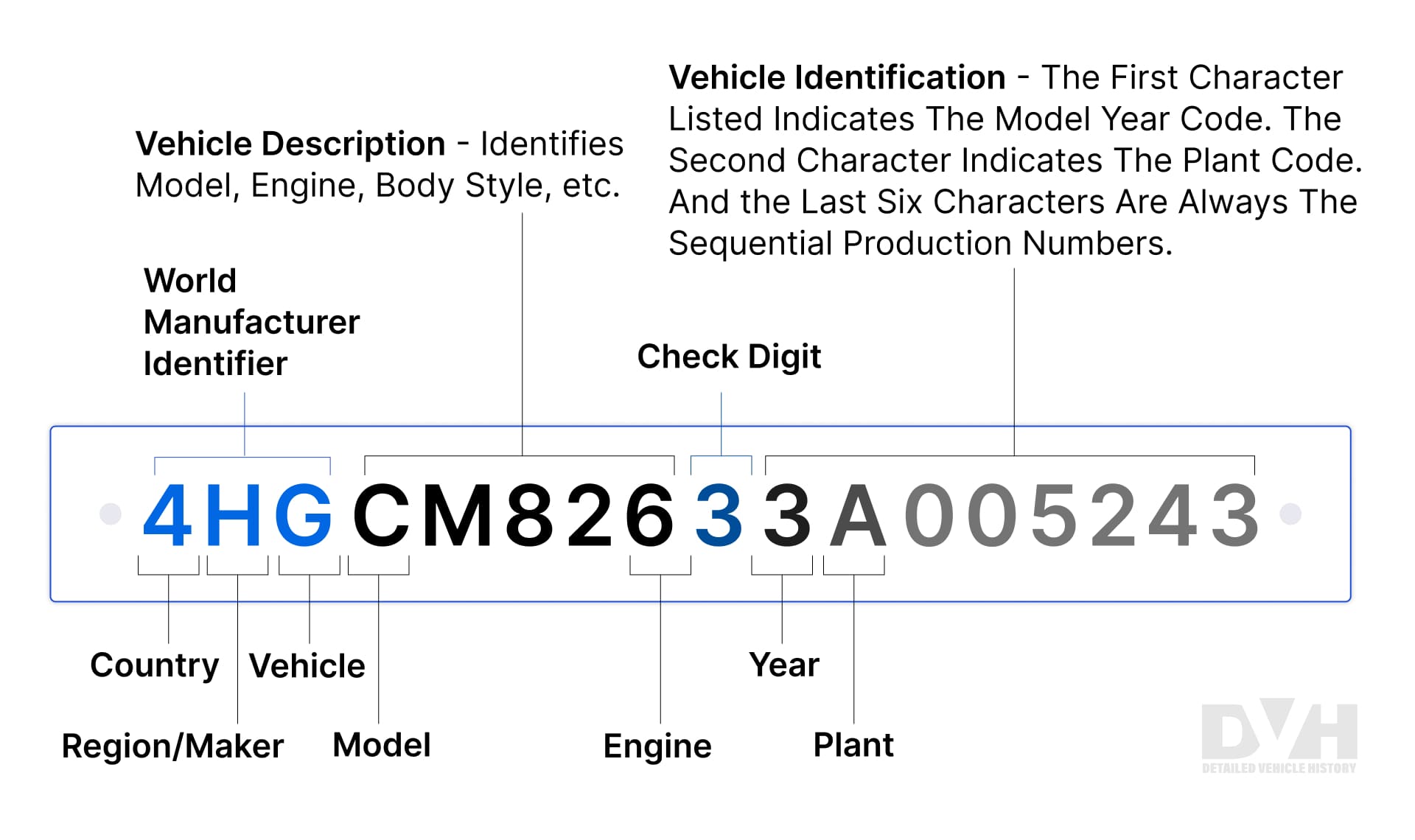
Best Cars for Uber and Lyft Drivers
Choosing the right car for ride-share driving is crucial for improving earnings and ensuring a comfortable experience for both drivers and passengers. In 2025,
You've received DISCOUNT!

Buying a used car becomes safer when you get a lot of information about the car. Instantly lookup any Smart VIN number by using our Smart VIN decoder to verify the specs and history.
A Smart VIN decoder analyzes the 17-digit VIN number and breaks it down into valuable details about the car. It provides factory information such as model year, body style, engine type, transmission, trim level, and even the manufacturing plant.
For a deeper look, you can access the full vehicle history report, which includes accident records, title issues, mileage history, ownership records, service history, recalls, liens, and other past records.
Running a Smart VIN check is crucial when buying or selling a used Smart. You can easily confirm records like accidents, floods, title brands, etc. This gives you confidence in your final decision. Here’s how it helps:
Decoding a Smart VIN confirms the car’s make, model, year, and trim. This helps you avoid false listings or mix-ups and ensures the vehicle truly matches what the seller claims.
A Smart VIN check can report accidents, flood or fire damage, or major repairs. Knowing this early protects you from unsafe cars, costly repairs, and poor investments that a test drive might not reveal.
By checking mileage history, you can detect odometer rollbacks or tampering. This ensures you pay the right price, understand the car’s actual usage, and plan maintenance based on accurate mileage records.
The VIN report tells you how many owners the Smart car had and how it was used, whether it’s personal, rental, or fleet. This helps judge reliability, resale value, and how well the vehicle was maintained.
Decoding the VIN helps check if the vehicle isn’t stolen. This saves you from legal issues, financial loss, or losing the car after purchase, giving you peace of mind after buying.
Having accurate specifications and history lets buyers and sellers agree on a fair deal. A clean record supports a higher value, while hidden issues may lower the price, ensuring no one overpays or undersells.
A Smart VIN decoder gives you access to both the car’s original factory specifications and a complete vehicle history report. It helps confirm accurate details, reveal issues like liens or branded titles for better buying or selling decisions.
With the free VIN lookup, you can instantly check basic factory details of the car. This protects buyers from misleading ads and provides owners with accurate information for maintenance or upgrades. Using it, you can view details such as:
This advanced VIN decoding gives you access to a full vehicle history report. It’s a smart move when buying or selling, as it reveals hidden issues that photos or test drives can’t show. Here’s what the report includes:
Simply follow these steps to instantly access the Smart vehicle history report.
Type or copy the 17-digit VIN into the search form above. Our VIN decoder also works for classic cars made before 1981, and with 5–14 digit VIN numbers.
Click the “Search VIN” button to decode the VIN. You’ll see a preview with the car’s basic details like the year, make, model, engine, and transmission.
Complete payment and click “Access Records” to get the full report in seconds. View online or download as a PDF for easy sharing or printing.
Every Smart has its own unique VIN, which differentiates it from all other vehicles. The Smart VIN number can be found in these places:

A Smart VIN is a 17-character code split into three sections, each revealing key details about the vehicle. For accurate results, enter or scan the VIN carefully, making sure not to confuse characters like “0,” “O,” “1,” or “I.”

This section identifies the manufacturer and country of origin. For the sample VIN: WMEEJ31X09K289240, the first three characters “WME” indicate that Mercedes-Benz produced the Smart car.
This section describes the model, body style, restraint type, and engine, and includes a security check digit (9th character) which confirms the rest of the VIN is accurate.
This section provides information on the model year, assembly plant, and a unique serial number used for production tracking and recall checks
If you’re looking for more vehicle details like recalls, original MSRP, etc, one of these tools might be just what you need.
Know what originally came with a Smart car. Find original features, MSRP, options, fuel economy, & more.
Instantly find out about any safety recalls and what they entail. Ensure safety and drive with confidence.
You can also use the plate number to get details and past records of any Smart vehicle.
Just enter the Smart VIN number into our free VIN decoder to retrieve the details of the vehicle’s specs like model, engine, transmission, and more.
A Smart VIN check is the process of entering a Smart VIN number into a VIN decoder to access crucial information about the vehicle’s specs and history, including accident records, stolen checks, lien and loan records, title checks, ownership records, and more.
Yes. The NICB VIN check allows you to lookup stolen records for free. However, to get the complete vehicle history, you need to use a paid third-party service to verify accidents, title records, liens, ownership, and more.

Choosing the right car for ride-share driving is crucial for improving earnings and ensuring a comfortable experience for both drivers and passengers. In 2025,

Key takeaways: The definition of a rebuilt title is when a car was declared a total loss by an insurance company, but then it

Key takeaways: Make is the manufacturer, while the model is the variant made by the brand. Knowing the car’s make and model is crucial

Don't leave the history behind on your vehicle
Check for accidents, title issues, repairs, and more.